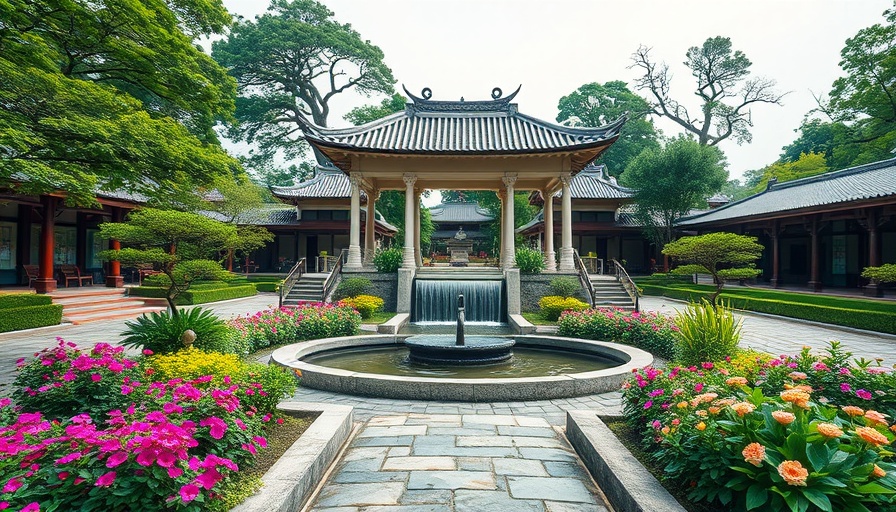
Discovering the African-American Cultural Garden: A Historical Journey
The African-American Cultural Garden in Cleveland is more than just a park; it is a poignant tribute to the African-American experience, particularly reflecting the Great Migration. This transformation of a once underutilized space into a cultural haven begins to answer significant questions about identity, heritage, and community connection. Under the stewardship of executive director Obie Shelton, the garden stands as a beacon of legacy and progress, as it showcases not only the struggles faced but also the triumphs and contributions of African-Americans throughout history.
The Rich Symbolism Within the Garden
As you walk through the African-American Cultural Garden, the rich symbolism embedded within its design becomes apparent. One of the most compelling features is the "Door of No Return," an artistic representation which symbolizes the horrific journey of enslavement. The garden's black terrace is not only functional, accommodating up to 300 visitors for gatherings, but it also serves as an aesthetic canvas etched with stars from the Little Dipper and the North Star, signifying hope and guidance during the migration north. These elements converge to tell the story of resilience and the quest for freedom.
Community Engagement: From Unsafe to Inviting
Situated in an area of Cleveland that historically faced challenges, the African-American Cultural Garden has witnessed a revival due, in part, to its positive transformation and community engagement. Shelton remarks on how the garden now draws diverse crowds, including college students and families. This level of engagement fosters education about African-American history and culture, helping to reshape perceptions of the neighborhood. Regular events and activities hosted in the garden offer both education and entertainment, inviting visitors to explore and appreciate the history encapsulated within this vibrant space.
The Virtual Experience: Connecting Communities Beyond Geography
In the era of digital connection, the African-American Cultural Garden is not limited to in-person visitors. For seniors and others unable to visit physically, the garden offers virtual tours through their website at aacg.org. Local broadcasters narrate the tours, enriching the storytelling experience and making the garden's history accessible to an even broader audience. This innovative approach ensures that anyone, regardless of their location, can connect with the cultural legacy fundamentally shared within the garden.
Future Aspirations: Expanding the Garden’s Impact
With stages of development still in progress, the African-American Cultural Garden holds great promise for the future. Plans for additional installations and events aim to deepen its role as a cultural center. Shelton's commitment to not only completing the garden but also expanding its influence reflects a larger movement to honor African-American culture in public spaces. As he enters his 70th year, Shelton is dedicated to fostering a space that captures the rich narrative of African-American history and paves the way for the next generation.
The Importance of Historical Reflection
The garden's history points to critical conversations around race, identity, and community. Historical reflection allows seniors, in particular, to engage with their past and the legacies that shape their futures. Automating tools to facilitate this engagement can enrich lives, promote understanding across generations, and cultivate a sense of belonging within a community that has too often been marginalized.
Make Your Visit: Engage with History
The African-American Cultural Garden is not just a place to visit, but a destination aimed at fostering understanding, connection, and education. With free admission, it beckons individuals and families to explore an integral piece of American history with modern relevance. As the garden continues to grow and evolve, it stands as a testament to the strength and resilience of the African-American community in Cleveland and beyond. Every visit represents an opportunity to honor that legacy.
Take action today! Plan your visit to the African-American Cultural Garden or engage with an online tour to enhance your appreciation of African-American history. It's a journey worth taking, and every step contributes to acknowledging and celebrating cultural heritage.
 Add Row
Add Row  Add
Add 




 Add Row
Add Row  Add
Add 

Write A Comment